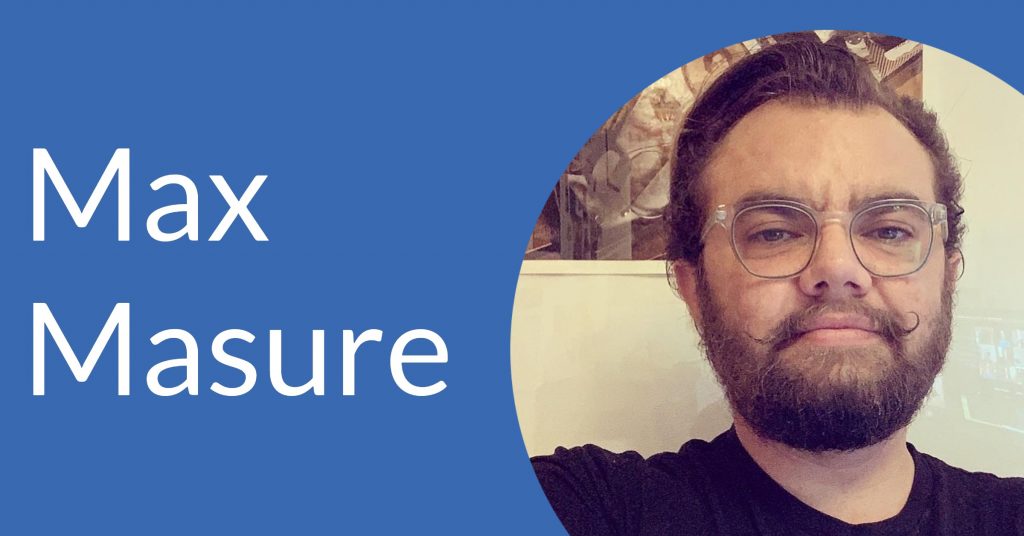
Can you introduce yourself and tell me a bit about your current role?
My name is Max Masure, I use they/them pronouns. I’m a UX researcher as well as being an author. I am currently writing a book on impostor syndrome. I’m focusing on selling my work into inclusive design, and how to have products and services that include everyone.
The book will be released in the fall, I’m in the process of editing everything at the moment.
Can you tell us a bit more about The Healing Schools Project?
Yeah! I am the co-founder and I worked for five months in starting this project to heal teachers, so they can heal students. That means that we host healing circles and support groups for the teachers.
Over the past 18 months, things have been particularly hard for teachers, so we create that space so they can talk within that space themselves. We can then take ideas from those discussions to implement better systems in the schools as well as advocate for the well-being of teachers.
Is that for schools and teachers in the USA?
For now, yes, specifically now at the moment in New York City. The project was born from an incubator fellowship program Blue Ridge Labs by Robinhood that focuses on Communities of Color in New York City, so we focused on teachers of color in New York.
What inspired you to want to work in the tech industry?
I have been working in tech for more than 15 years now, and I saw a lot of projects that were not taking ethics very seriously and were more focused on making a profit. The more I grew and got older, I’m 40 now and now I have more strength, I respect myself more to be able to say no more to some decisions. So, I’m still sticking with tech, but with this more inclusive lens; I’m not going to be able to work with every tech company because I have my own limitations and ways that I want to work. It has to be a project that is mission-driven and human-centered.
The projects I work on are listening to what people need before trying to push a project or a product just to sell it. It’s usually community-centered design, which means gathering insight from the people who are actually going to use the service. So, I’m in between civic design and tech.
What challenges have you faced in the industry?
Getting the buy-in, the buy-in of inclusive design overall. You still need to explain why it matters. People still want to know what the return on investment is for being inclusive, you do it because it’s the right thing to do! Being a product that does not harm people, but that actually supports them, that’s the pushback that I have.
I come up with ways of doing a good design by listening to communities, and I’m often received with “yeah but how do we make money?” both are possible, but I think it’s very hard to get that topic to be embraced by CEOs and people in leadership.
Do you think people in the transgender community are put off working within industries like the tech industry?
There are two aspects, being hired and staying because we feel like we belong. If you are part of an underrepresented community, which is already a huge task and is very hard; on top of that even if you get hired and you work at a tech company, if the culture of that company is not inclusive, you might be the only trans person or the only Black person in the company and nothing would be made comfortable for you.
After two years, a lot of underrepresented people just leave and quit their job because they don’t feel safe at work. So, yeah there is not a lot of hires, and then staying long in the position is not something that is seen.
What can companies do better to be more inclusive of the transgender community?
I would first get them to listen to the employee and get them to understand what is happening in the office, that might be different from what they think. A simple action is to use pronouns; this can be in their email signature, on their website, when they introduce people, and also during meetings. This is an action that doesn’t cost anything for someone who is not trans, to share their pronouns which is the first step to creating an inclusive company culture. Where people will be seeing that you can be who you want to be, who you are and we will welcome you with whatever pronouns you use, and we are making space for you to share that pronoun with us.
I have a success story, where after one of my trans inclusion workshops, one of the attendees added their pronouns on LinkedIn, and two days later a university called him and asked him if there was a position there because they have a transgender student who is looking for an internship, and they were saying because they had seen the pronouns being used, and more co-workers had followed this trend, that it seemed like this would be a safe place to work for the transgender student.
Understanding the importance of inclusion
That’s a big step for me, to try and get people to understand the value of pronouns. It’s that small actions have a big impact. In my workshops, I share my own life of being a trans person, but I also put them into a situation where they have to think ahead; looking at situations for example, like when someone feels like they are not respected, looking at what they could have done to avoid that situation. They can then see why and how adding pronouns onto things like name tags or onto Zoom names, would be enough to create a safe space. So, when they understand, and they think about a solution, that’s where I have a lot of good responses.
My workshops can include the whole company from CEOs to employees. It’s interesting to have CEOs and leadership talking with their own employees. I have some workshops that are just for CEOs where they can then spread their good practices to the rest of the company.
What can co-workers and colleagues do to help colleagues who are transgender to feel more comfortable or included?
If we focus on the trans community if you are not trans there is a lot that you can do just by being an advocate. So, instead of it being the trans person advocating for signatures with pronouns, or name tags with pronouns, as a colleague who is not trans you can be the one pushing that forward. By doing that you remove the burden for the advocacy from the trans person and you take that onto yourself, instead of the trans person having to do all the work.
I think that’s a really good practice to have, just really advocating for inclusion. Also better healthcare solutions that are supporting transgender care. It’s usually only the trans person who is pushing for that, and it’s exhausting. Anyone who can come into the same fight is a good move.
Do people need to be educated more?
Yeah, we are wired to be afraid of what we don’t know. As soon as I do a workshop, it’s almost instant with people saying, “now I get it!”. I do a survey before the workshop, and then after the workshop. The questions are around how comfortable are you around pronouns and transgender and gender-conforming people,
I always have about 40% better at the end after just one hour workshop. People say “now I understand, I’ve connected with you as a trans person” and they already said they would add their pronouns. Being comfortable with the subject makes us more equipped to react, to say something to a co-worker who is transgender – to feel more confident, and then you can take action.
What advice would you have for someone who is struggling with public speaking?
The way I do it, is I do smaller presentations with friends first, people who are your cheerleaders! People who are actually going to help you improve, before jumping into a big presentation in front of a lot of people. I would test the presentation in front of friends who can give good feedback and encouragement. One of the main things I do with public speaking, is that I don’t use too many slides! I really try to make it conversation eye to eye. We usually tend to use about 30 slides because we want to be hiding behind the slide saying “look at the slides and not me!” But I think that is where you lose the connection, the human connection.
The public speaking that I do, is about inclusive user design and about impostor syndrome which is what my book is based on. There are some activities in my book that I do live with people in the workshops. I only know from my story, I had a lot of impostor syndrome, my book is about how I grew from it, and how I am better at silencing impostor syndrome over the course of a few years since I came out as a trans person.
So, I’m sharing all that in the book, but thought maybe this is just me? So, to be sure I launched a survey and I had 150 people answer the survey which included questions like do you feel like you’re forced to work at a rushed pace? Are you worried when you’re waiting for feedback from a manager? Etc. I was surprised to see that it’s not only me, but it’s also that a lot of people have this.
What’s the best advice anyone has ever given you?
It’s that you can do it! I took some singing lessons a couple of months ago, before that I always told people I don’t know how to sing, I’m not a singer and I don’t have a voice, and then at some point I just got the courage to try, and I’m actually good at it! The classes were around really discovering your voice and being comfortable with singing.
I feel like everything that we try, we can actually be good at; but I think we are raised in a society where we are not encouraged. Maybe you have been raised the same way I have been raised, where it’s often said “no you cannot do this, don’t even try that’s not for you”. I think we’re really limiting ourselves by keeping those internal voices saying “you can’t do it” but yes you can! That’s why the title of my book is “You Don’t Suck” because that’s an answer to my own imposter syndrome that would tell me “you suck, you can’t do this” and that’s why I wanted that as the book title!
For my book, there is a page on my website, where people can sign up to be notified of when the book is going to be available this coming Fall 2021. Click here to visit my website http://www.maxmasure.com/impostor-syndrome-workbook



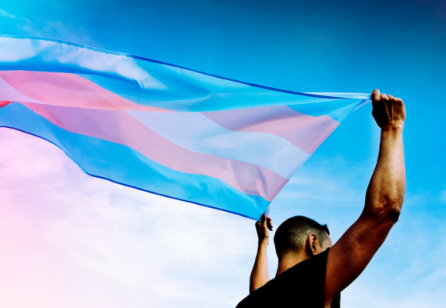
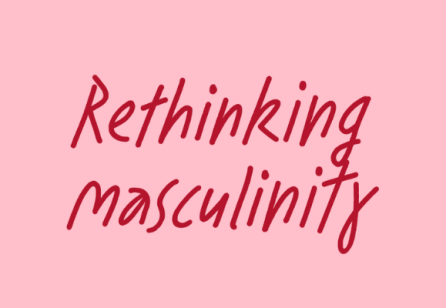
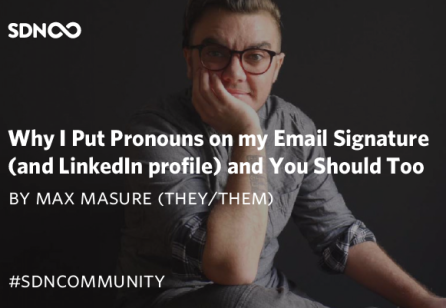
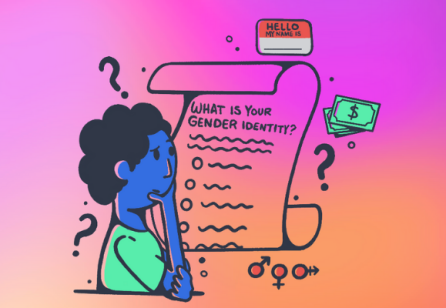

Share your thoughts
0 RepliesPlease login to comment